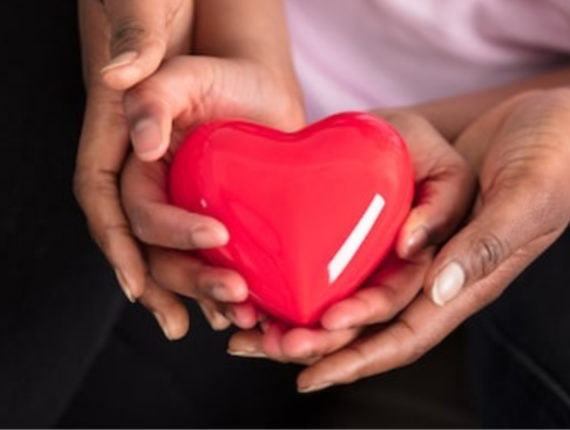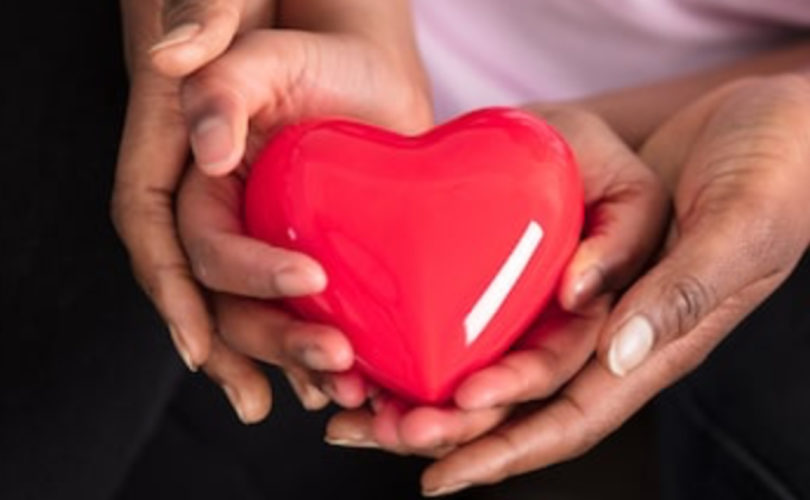
The Parent Perspectives series provides a space for parents and caregivers in the autism community to reflect on and share their experiences navigating raising a child with autism. This month’s post highlights the experiences of two families raising young, black men with autism in our country’s current climate.
Black Lives Matter
By Kimberly Cousin
I am the mom of three boys and a girl. In typical mom ways, I worry about my children for different things. One of my sons has autism. He is a tall, athletic African-American teenager. You don’t notice his difference until you talk to him or engage him in some way. I worry about him the most. Will he say or do something odd while we are out at the store? Will he leave the house when we are not watching? Will he stay with his brother if I let them walk to the store? Will he grab something off of the shelf and none of us who are with him notice it? Then will he be stopped by store security? Does he have the potential for the same type of interactions with police that I see on TV? I try to stop my thoughts…I think of what the old folks say, “don’t speak that to existence” (when you say out loud what you’re afraid of). But, I often can’t help myself. My son doesn’t always process what he is told at the time he is told. Would he keep walking when the cops say stop? Would he want to touch their gun because it’s shiny?
All of these things could create the perfect storm of poor decision making and could my son become a hashtag? I remember reading about the young man with Down’s Syndrome who was put in a chokehold and died. The police were called because he didn’t want to leave the movie theater. I remember the young man with autism and a toy truck that someone thought was a gun and called the police. When the police arrived, they shot his African-American caretaker who was trying to deescalate the situation and was following the police commands. The caretaker lived, but they traumatized that young man forever. I think of the man with autism who was detained by the police and handcuffed. It was assumed by the police that he was under the influence of illegal drugs. They could not recognize that he had autism. I think of the reason that the National Autism Association of North Texas even exists (because of the police murder of a man with autism and a fork).
Oh! How do I ever let my son out of the house? Out of my sight? What if there is a police issue with my three sons and his brothers can’t calm him down or communicate with him? Anything could happen…but I won’t speak that into existence.
As I think about Black Lives Matter and its intersection with the Autism community, I think about what it means for someone else to have to respect my child’s humanity. I have to be able to trust that the police respect his humanity. They need to know that he has people who love him. They need to stop and listen and not be so quick to get to lethal force.
We cannot ask for policy changes nor support increased training first. What must first happen is a change of heart. I know the police see the worst of situations and have been around some people with terrible behaviors. But, they must remain in constant review of their hearts. It is their heart that sees the humanity in each of us. If they cannot do that, there isn’t a policy that can be written nor a training that can be provided which would prevent the next wrongful death at police hands, with or without autism. Let’s work together to teach everyone to value humanity. That’s the only way to prevent another person, with autism or not, from becoming a hashtag. Black Lives Matter.
Jarred and Me
By JoAnn Harris
When Jared was born, he had the biggest and most beautiful eyes! He and his twin brother James were typical babies, progressing through the typical baby stages—sitting up, crawling, curious—at a normal pace, or so I thought. But my daughter, their mother, saw something I didn’t see.
When Jared was diagnosed with autism by the developmental pediatrician at 28 months, she was devastated. She later explained that it was a feeling of grief because all her dreams for him and who he would become were shattered that day. But as I heard the doctor’s words, all I could think was how God knew the perfect time to send us this child. How 40 years earlier, when my daughter was his age, there was no autism distinction or any real awareness of it, and every special-needs, developmentally delayed child was lumped into one pitiful group of “retarded.” At least, that was my experience. And I thought of what my life was like at that time, and how I probably wouldn’t have recognized the then-subtle signs she saw as indicative of a problem. That I likely would not have sought services promptly, or even known what services to seek. That sadly, back then, we might have been unable to avail ourselves of any services simply because we are Black.
My part in Jared’s autism journey started in earnest shortly after that autism diagnosis. I drove him to and from ABA therapy everyday while my daughter worked. I worked second shift and was happy to help. Jared’s first ABA program was modeled on the Walden preschool program at Emory University in Atlanta and included typically developing peer models, so James also attended. A couple of years later, Jared received ABA therapy at a center focused on intensive one-on-one therapy. Because neither of these programs was close to where we lived, we traveled nearly a hundred miles round-trip, each day for therapy. When James started at a separate preschool, it was just the two of us.
The first time we were stopped by a policeman, really a highway patrolman, I was racing to get Jared to therapy on time. The patrolman pulled us over and walked up to the car where Jared sat in his car seat flapping his ribbon rapidly (his preferred stim). I let my window down and also let Jared’s window down so he could be seen. When the officer spoke to me and then to Jared. I prompted Jared to reply.
It was obvious then that he a special child. After that, I started to think about the police, about being stopped, about Jared’s rapid movements with the ribbon or his hands and his “dancing” as he listens to music. Like all African American parents (and grandparents), I have known the necessity of giving “the talk” to my sons and grandsons—that is, explaining to them how they must behave around police so that their actions aren’t misconstrued or otherwise used to justify hurting them. I started trying to formulate plans for us if we were stopped again in the car (likely, based on the sheer number of miles traveled each day) or on foot.
The next time Jared and I had an encounter with police, I had taken him into a convenience store to get a cookie and a soda after I picked him up from school. I always let him pick his own soda from the fountain and his own cookie from the rack. He was very vocal, as he usually is when he’s excited, and naturally attracted attention. The police officers were in the front of the store when we entered, and as I normally do, I encouraged Jared to say hello (my ulterior motive was to demonstrate that Jared had special needs and posed no threat). When we got back to the counter to pay for our purchases, the officers had already paid for them and left the store. As it happened, they patrolled that neighborhood regularly, and we became a familiar sight to them as we traveled to and from that city. That was a good ending.
I will admit, however, that I am even more apprehensive about police encounters now because, as has been well publicized lately, the relationship between the police and members of the black community is not always ideal. I am especially concerned for Jared’s safety because he is now a young man. Will a police officer intimidated by his size and his blackness be immediately confrontational before learning that Jared has very limited verbal skills and severe intellectual delays? Will an officer mistake his natural movements for “furtive gestures”? I’ve seen incidences of that in the news, so it isn’t that far-fetched a consideration.
It would be naïve to let my guard down, based simply on the positive experiences Jared and I have had with police officers thus far, and permit myself to believe that every future encounter will be a pleasant one– especially as Jared continues to age and grow in stature. He will always be black; we will always be black. I only know I must be ever-vigilant when it comes to his safety, and I must be proactive in presenting Jared as non-threatening in our encounters, not only with law enforcement, but with most people we come in contact with as we go about our daily lives. It is a sad fact that there are increased risks of harm whenever an individual with mental health issues engages with the police. We’ve all read or seen the stories. Well, it is also an unfortunate fact of life that black men are frequently perceived as threats by many, based on appearance alone. This is the reality of our lives as Black Americans. And this is the reality of Jared’s life as a young African American man with autism.
If you would like to share your family’s unique story in a future Parent Perspectives blog post, please email kelsylaurent@gmail.com.


